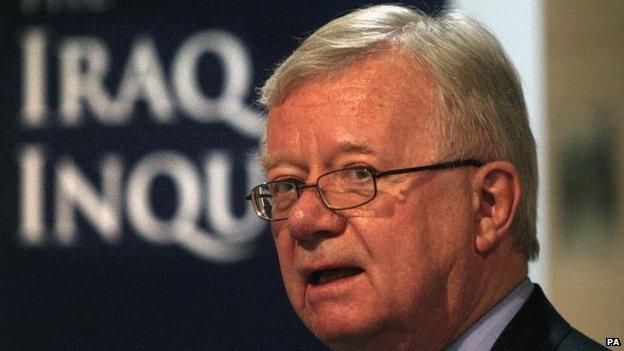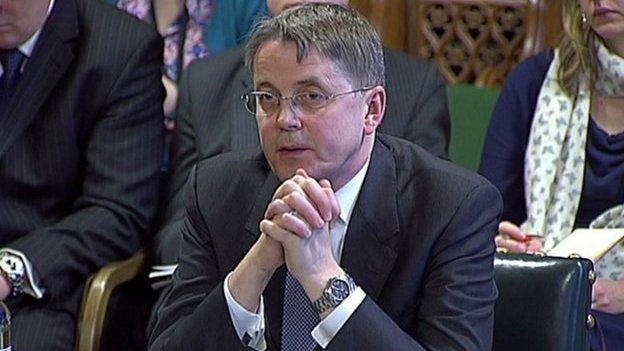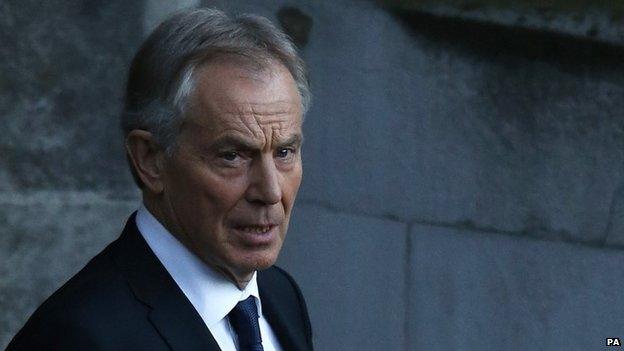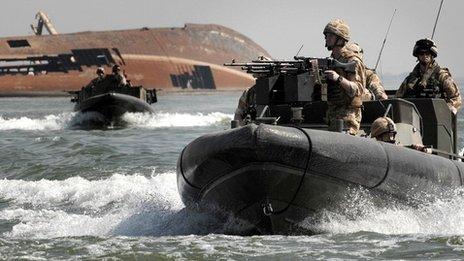Iraq Inquiry: Chilcot to face MPs over delays to report
- Published

Sir John Chilcot has led the inquiry for six years
The head of the Iraq Inquiry is to be questioned by MPs next month about why its official report will not be published before the general election.
Sir John Chilcot will appear before the Commons Foreign Affairs Committee on 4 February to explain delays to its work.
On Tuesday, the UK's most senior civil servant said "nobody expected" the Inquiry to take so long to report.
Sir Jeremy Heywood said it was expected it would take a year and complete its work by the end of 2010 at the latest.
Sir John revealed last week that there was "no realistic prospect" of the final report being published before the general election on 7 May.
The inquiry, which is looking into the UK's involvement in the US-led invasion of Iraq in 2003 and its aftermath, began its work in 2009.
The Foreign Affairs Committee said it would question Sir John "on the preparation of his report and on the obstacles which remain before he can submit it to the prime minister".
'Incomplete'
Sir Jeremy, who is Cabinet Secretary and head of the Civil Service, told the Commons Public Administration Committee that the delay until after the election was "frustrating" and he could not explain why this had happened.

Sir Jeremy said he did not know the reason for the delays
The inquiry, he said, had begun the process of contacting those likely to be subject to criticism in the report to give them the right to respond but this work was "incomplete".
He said he had no evidence any witness had "deliberately tried to hold up" this process, believing they were considering in "good faith" how to respond.
Sir Jeremy, who was private secretary to former Labour prime minister Tony Blair in the run-up to the invasion, said he was not responsible for the delay and had not received a letter as part of the process.
'Comprehensive'
While understanding public concern over the issue, he said it would be wrong to "rush" publication at this stage and said he would advise against calls by some MPs for Parliament to try to subpoena the report.
MPs angry at the delays are to debate the issue in the Commons on Thursday.
Sir Jeremy, who has the final say over which previously classified documents can be included in the final report, said all correspondence between former prime minister Tony Blair and President George W Bush requested by the inquiry would be published.
There would be a small number of redactions, he told MPs, in areas not related to the Iraq conflict, such as relations with other governments and intelligence matters.
He said there had been a "bias towards transparency" in deliberations over the release of documents and he hoped the final report would be "comprehensive and complete".
"There was a disagreement, a discussion between departments and the inquiry as to whether or not certain very sensitive documents, which previously would never have been contemplated for publication, should indeed be published," he said.
"That issue came to me for resolution in line with the protocol that was agreed and over a passage of weeks we resolved that to their satisfaction."
- Published21 January 2015

- Published21 January 2015

- Published5 July 2016
